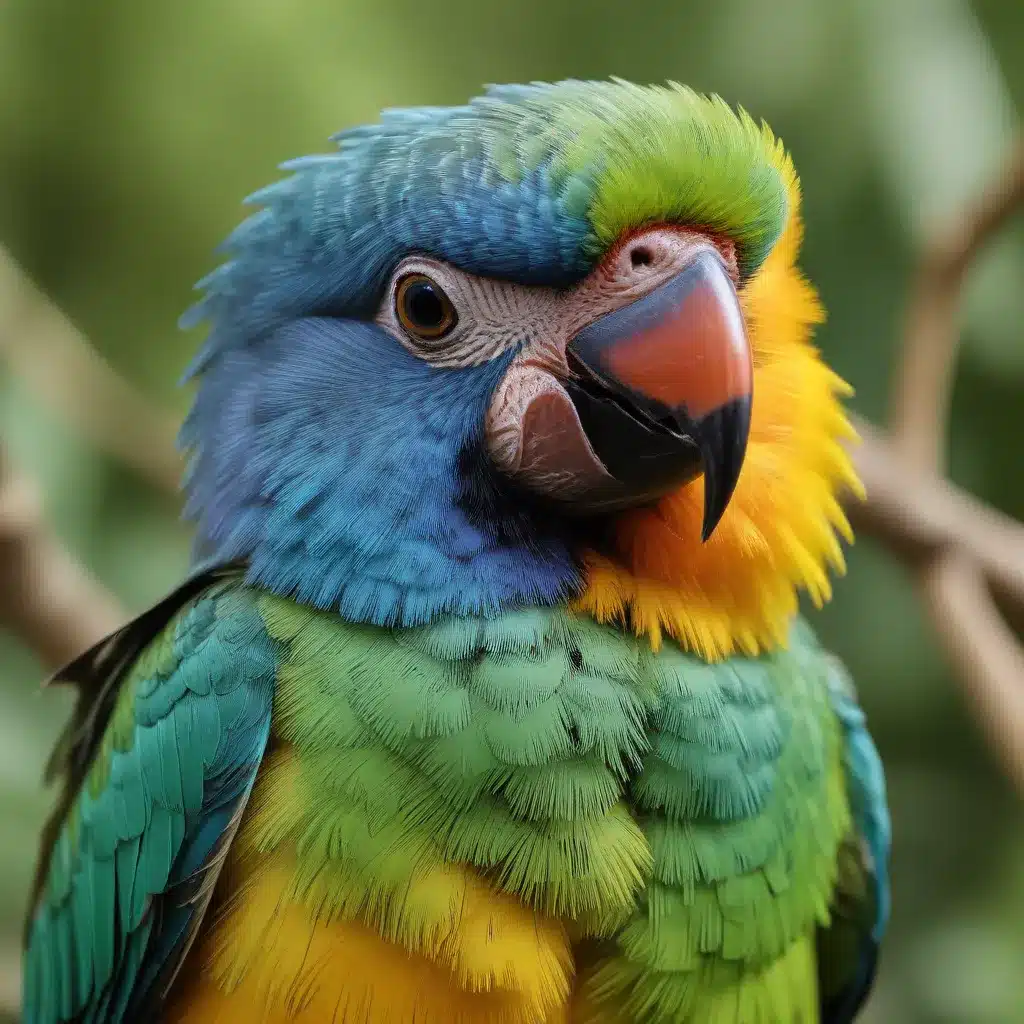
As an experienced avian caretaker, I’ve dedicated my career to addressing the crisis of unwanted companion birds and promoting responsible bird ownership. Through my work at organizations like Albatross Aviary, I’ve witnessed firsthand the profound and complex bond that can develop between humans and their feathered friends.
Avian Species and Diversity
The world of exotic birds is truly captivating, encompassing a vast array of species, each with its own unique behavioral characteristics and care requirements. From the vibrant plumage of macaws and cockatoos to the delicate grace of parakeets and canaries, these feathered companions have captured the hearts and imaginations of people around the globe.
Common Exotic Bird Species
Some of the most popular exotic bird species kept as pets include cockatoos, macaws, parrots, conures, cockatiel, parakeets, and lovebirds. Each species has its own distinct personality, dietary needs, and environmental preferences that must be carefully considered when welcoming a new avian companion into the home.
Avian Habitats and Ecosystems
In the wild, these birds thrive in a variety of ecosystems, from the lush rainforests of South America to the arid savannas of Africa. Understanding the natural habitats and behaviors of different bird species is crucial in providing them with the appropriate living conditions and enrichment within a captive setting.
Avian Behavior and Communication
Exotic birds are highly intelligent, social creatures, and their complex behaviors and vocalizations are a testament to their remarkable cognitive abilities. From the playful antics of cockatoos to the problem-solving skills of African greys, these birds possess a remarkable capacity for learning and communication that can deepen the human-avian bond.
Bird Ownership and Care
Welcoming an exotic bird into one’s home is a significant responsibility that requires a deep understanding of the species-specific needs and a commitment to providing a nurturing and enriching environment.
Selecting the Appropriate Exotic Bird
When choosing an exotic bird as a companion, it’s essential to carefully consider factors such as the bird’s size, lifespan, dietary requirements, and temperament. Consulting with experienced avian professionals can help ensure that the selected species is a good fit for the owner’s lifestyle and living situation.
Avian Nutrition and Diet
Providing a balanced and species-appropriate diet is crucial for the health and well-being of exotic birds. This may involve a combination of high-quality pellets, fresh fruits and vegetables, and occasional treats. Consulting with an avian veterinarian can help owners develop a nutritional plan tailored to their bird’s specific needs.
Aviary Design and Housing
Constructing a spacious, enriched, and secure aviary or bird enclosure is a fundamental aspect of exotic bird care. Factors such as cage size, perch placement, temperature, and humidity control must be carefully considered to create an environment that meets the bird’s physical and behavioral needs.
Avian Health and Wellness
Ensuring the health and well-being of exotic birds requires a proactive approach to preventative healthcare and the prompt recognition and management of any illnesses or injuries.
Preventative Healthcare for Birds
Regular veterinary check-ups, routine feather, nail, and beak trimmings, and the implementation of proper sanitation and hygiene practices are all essential components of preventative healthcare for exotic birds. Staying up-to-date on vaccinations and parasite control can also help safeguard the bird’s long-term health.
Recognizing and Managing Avian Illnesses
Developing the ability to recognize the signs of common avian illnesses, such as respiratory infections, gastrointestinal issues, and feather-destructive behaviors, is crucial for providing timely and effective treatment. Seeking the guidance of an experienced avian veterinarian is paramount in managing these conditions and ensuring the bird’s recovery.
Avian Rehabilitation and Veterinary Support
In cases where birds require more intensive medical care or rehabilitation, having access to a qualified avian veterinary clinic or specialized rehabilitation center can make a significant difference in the bird’s prognosis and overall well-being. These facilities are equipped with the necessary expertise and resources to address a wide range of avian health concerns.
Education and Community Support
Empowering bird owners through comprehensive education and fostering a strong community of avian enthusiasts is at the core of my mission as an experienced avian caretaker.
Avian Husbandry Workshops and Classes
Offering hands-on workshops and educational classes covering topics such as avian care, behavior management, and environmental enrichment can equip bird owners with the knowledge and skills necessary to provide their feathered companions with the best possible quality of life.
Online Resources for Bird Owners
Developing a robust collection of online resources, including informative articles, video tutorials, and interactive forums, can serve as a valuable resource for bird owners seeking guidance, troubleshooting advice, and a sense of community.
Avian Advocacy and Rescue Organizations
Collaborating with avian advocacy and rescue organizations, such as Albatross Aviary, can help address the crisis of unwanted companion birds and provide a safety net for those in need. These organizations play a vital role in educating the public, promoting responsible ownership, and finding loving homes for birds that have been surrendered or abandoned.
By empowering bird owners through comprehensive education, fostering a supportive community, and advocating for the welfare of exotic birds, we can work together to ensure that these remarkable creatures thrive in captivity and continue to enrich the lives of their human companions. Visit Mika Birds Farm to explore our wide selection of high-quality bird products and learn more about our commitment to avian care and education.


